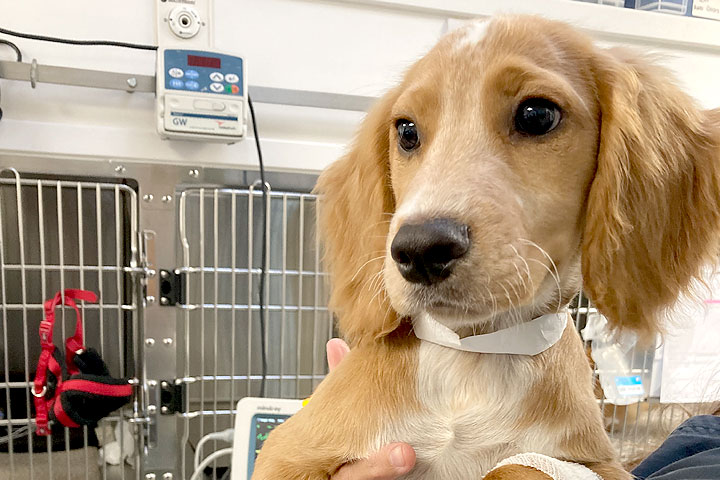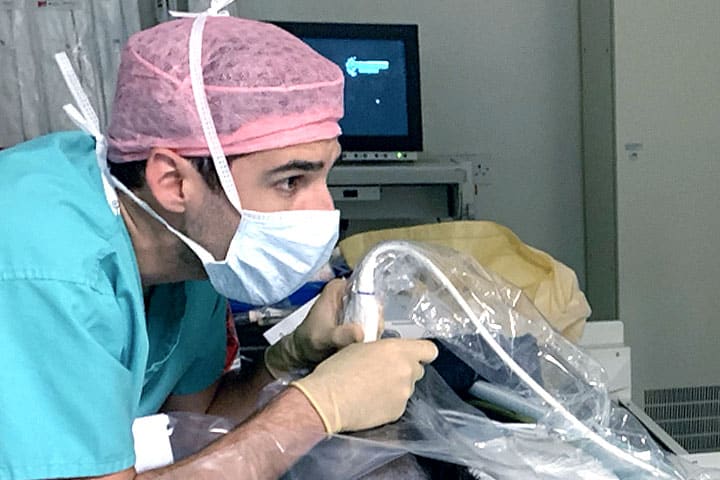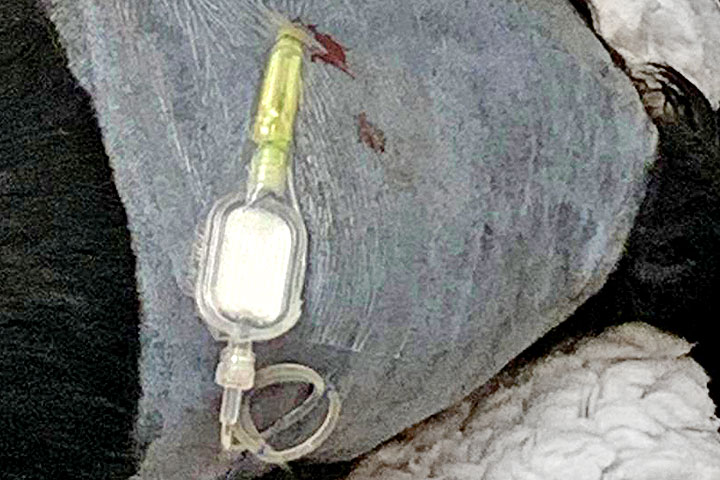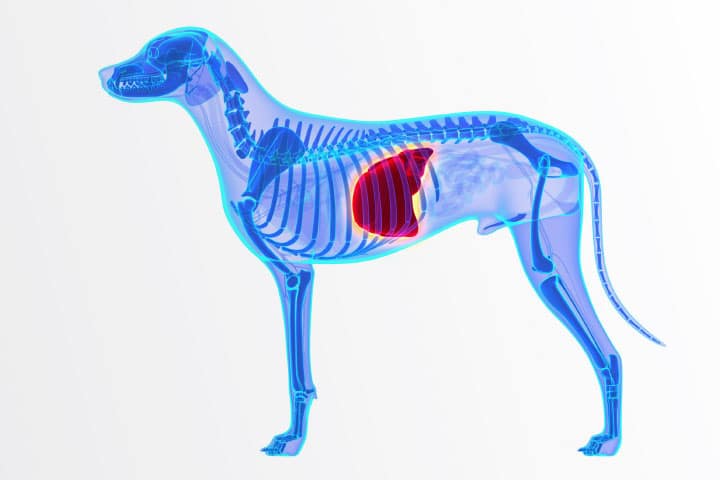Internal Medicine
Bless You, Evo! Surrey Vets Sniff Out Puppy’s Painful Problem
The mystery of a young puppy’s month-long bout of acute sneezing has been solved by a leading small animal hospital in Surrey. Poor Evo, an 11-month-old Cockapoo, was having up to 15 sneezing fits a day, leaving his local vets mystified as to the problem. However, Specialist Paula Valiente, quickly discovered the cause – a pointed…
Read MoreHelp us to keep antibiotics working
What is antibiotic resistance? Antibiotic resistance occurs when bacteria develops mechanisms to reduce the effects of the antibiotic. These mechanisms evolve through mutation and adaptation. Mutations can be good or bad for bacteria. In some cases, the mutation kills the bacteria and it may provide the bacteria with a survival advantage. The survival advantage may…
Read MoreWi-Fido! NDSR Save Dog After 21st Century Stick Encounter!
Sadly, there’s nothing new about a dog being injured by a stick. However, a mischievous spaniel has given an old story a 21st Century twist when he required specialist treatment at North Downs after swallowing a USB stick! Billy gobbled down the byte-sized device, a computer connector for a wireless mouse, and was soon suffering…
Read MoreInterventional Pain Management Clinic Launches at NDSR
We’ve recently enhanced our industry-leading service by starting to offer a unique interventional pain management clinic. This pioneering interventional treatment will be led by Roger Medina Serra DVM MVetMed MRCVS. The service, which will largely see patients treated and sent home during the same day, will include spinal interventions and interfascial, perineural and intra-articular injections.…
Read MoreNew options for analgesia… Epidural catheters
Epidural analgesia injections can provide excellent analgesia often with complete blockade of the pain pathways. One limitation of the technique is the duration of action after a single injection which can vary from 10-24 hours. For some patients such as trauma patients prior to surgical stabilisation of fractures and patients recovering from major hindquarter surgery…
Read MoreTip of the Month – December
Internal Medicine The thyroid and the kidneys: a love-hate relationship! Hyperthyroidism and chronic kidney disease (CKD) are common conditions in older cats, so it is not terribly surprising that they can occur in the same patient. Hyperthyroidism “artificially” increases renal blood flow and glomerular filtration rate, potentially therefore masking renal insufficiency. Following therapy, when euthyroidism…
Read MoreTip of the Month – November
Internal Medicine Interpreting Pancreatic Lipase (PL) Results in Dogs with a Balanced Overview Acute pancreatitis is a common cause of vomiting, inappetence, lethargy and abdominal pain in dogs, but confidently diagnosing pancreatitis can be a challenge. Biochemical changes seen in acute pancreatitis can include liver enzyme elevation, hyperbilirubinaemia, mild hypoalbuminaemia and markers of dehydration, but…
Read MoreTip of the Month – August
Internal Medicine Vaccination on patients on immunosuppressive medications and chemotherapy Deciding whether to vaccinate an animal on immunosuppressive medication or chemotherapy is challenging. Vaccination in such patients is not sanctioned by vaccine companies, as they have not thoroughly investigated their products in this setting. There is some experimental data to offer guidance in these situations,…
Read MoreTip of the Month – May
Internal Medicine Investigating liver disease Liver disease can be associated with specific clinical signs such as jaundice, non-specific clinical signs such as hyporexia, or can be asymptomatic and discovered incidentally when performing biochemistry tests for other reasons. It is important to be aware that liver disease may be primary (inflammatory hepatopathies, copper accumulation etc), or…
Read MoreTip of the Month – March
Internal Medicine Diagnosing hyperadrenocorticism with confidence Canine hyperadrenocorticism: How to not stress about the diagnosis Identify other diseases before endocrine testing ACTH (Synacthen®) is not necessary to diagnose the condition in many dogs UCCR is rarely used to confirm the disease Beware the ‘unwell’ dogs with hyperadrenocorticism Getting started Making a confident diagnosis of canine…
Read More








